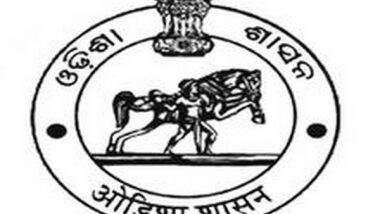Bhubaneswar (Odisha) [India], April 12 (ANI): Reeling from the heat wave conditions Odisha Government on Tuesday issued guidelines for the districts on the preparedness and precautionary measures to be taken to tackle the heat wave situation during the ongoing summer across the state.
"Special Relief Commissioner Satyabrata Sahu issued directives to all the District Collectors to take measures for managing heat waves and water scarcity situation across the State," the official statement said.
Also Read | IMF Predicts Modest Global Growth, Slowly Receding Inflation.
"Since the temperature is rising gradually, it is once again reiterated that immediate steps may be taken as preparedness and precautionary measures at different levels in your district to meet the prevailing heat wave situations by adhering to the salient measures as follows," Sahu said in an official letter to District administrators.
In his letter, he mentioned that district administration is required to take advanced steps to identify the water scarcity pockets.
Also Read | Italy Declares State of Emergency over Migrants.
"Water scarcity is often associated with heat wave situations which need special attention. The District Administration is required to take advanced steps to identify the water scarcity pockets (village/ hamlet/ ward wise) and prepare an action plan for ensuring the supply of water for drinking and other uses through tanker to those areas. Reports of water scarcity are to be responded to immediately," the official letter said.
"Paniya Jala Seva Kendras" (Drinking Water Kiosks) are required to be opened by Urban Local Bodies/ Gram Panchayats at marketplaces, bus stands and other congregation points. Water provided in such water kiosks must be of potable quality and proper sanitation maintained including use of long handle dispensers and change of water daily," the official letter added.
The letter issued also specified the guidelines schools have to follow in the ongoing summer.
"In Schools, Colleges and other Academic/ Technical institutions, extra care has to be taken to ensure the availability of drinking water. Sufficient ORS are also to be kept in schools, and colleges and provided to students/ staff requiring the same. Outdoor activities have to be restricted so that the students not to be exposed to heatwave conditions," it said.
It also specified that Anganwadi Centres may remain open in the morning hours only. The availability of portable water in all AWCs must be checked and ensured. Sufficient nos. of ORS packets should also be available with ASHA and AWWs.
Odisha Government in its directives also mentioned that separate wards/ beds should be earmarked for the treatment of heat stroke patients.
"Sufficient life-saving medicines, saline, and ORS may be stored in dispensaries, PHCs, CHCs and Subdivision/ District Headquarters Hospitals to meet the requirement. A special arrangement may be made and separate wards/ beds be earmarked for the treatment of heat stroke patients in different hospitals. The ESI Dispensaries may be directed to treat the general public," it said.
"During severe heatwave conditions, the timings of non-air-conditioned public transport services may have to be rescheduled avoiding their plying during peak hours of the heat wave. However, while doing so, inconvenience likely to be caused to long-route passengers must be kept in mind," it added.
The timing for the engagement of labourers/workmen at worksites may be rescheduled. No work should be executed during peak hours during the heat wave period. The employers must make necessary arrangements for the supply of drinking water, ORS packets and provision of a rest shed at the worksite. Detailed instructions/ Guidelines of the Labour & ESI Department may be followed in this regard.
In directives issued Odisha Government has stated that uninterrupted power supply shall be maintained by the Distribution Companies during the summer months.
"The uninterrupted power supply shall be maintained by the Distribution Companies during the summer months. In case, load-shedding is absolutely necessary for some areas, the schedule must be announced for the information of consumers sufficiently in advance," it said.
The control rooms at the District level shall function round the clock during the period of the heat wave. The heat wave warnings issued by IMD should be tracked on regular basis and if necessary, the Control Room of IMD/ State EOC may be contacted for such information, the guidelines specified.
"All efforts should be made to see that no human causality occurs due to heat waves. However, if any information on casualty is received or a news report is published in the media, it should be immediately enquired into and the veracity of such reports should be promptly reported to this office," directives stated.
Odisha Government also stated that if a person dies from a sunstroke then an immediate joint enquiry has to be conducted by the district collector.
"Where reports regarding the death of a person due to sunstroke either at the workplace or any other area are received, the collector should arrange to conduct an immediate joint enquiry of the case by the local Revenue Officer like Tahsildar or Additional Tahsildar (in rural areas) or any other Revenue Officer in Urban areas (authorized by concerned Sub-Collector) and the local Medical Officer (to be nominated by the CDMO/ SDMO). The joint enquiry report with the countersignature of the Collector should reach this office within 48 hours of the reported death," the letter mentioned.
"Where, upon enquiry, the death is confirmed to have occurred due to sunstroke, immediate steps shall be taken to process the case in DAMPS for sanction and payment of ex-gratia to the bereaved family," it added. (ANI)
(This is an unedited and auto-generated story from Syndicated News feed, LatestLY Staff may not have modified or edited the content body)













 Quickly
Quickly


















